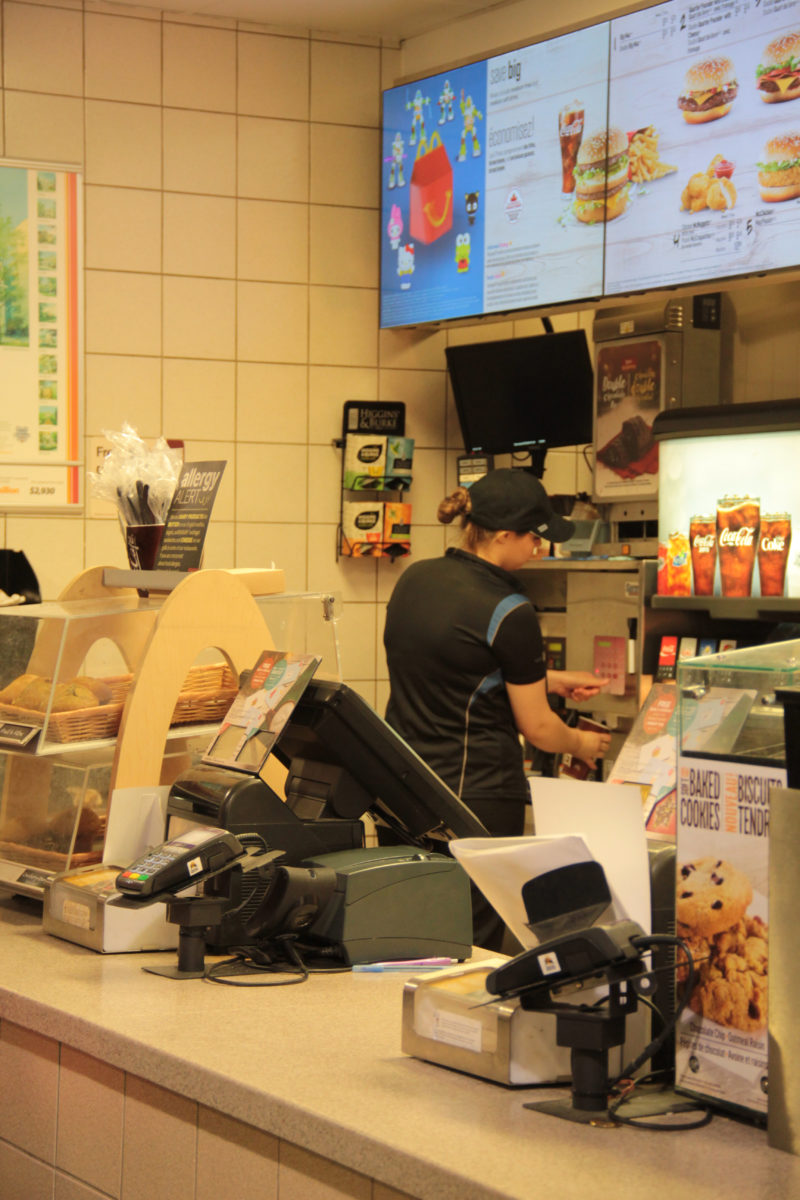Most students struggle with working dull, minimum-wage jobs. Just as many have to deal with figuring out how to fit such jobs on a resumé in a way that will be impressive.
Students can be intimidated while applying for high-end jobs if they feel like working in a fast-food restaurant, for example, hasn’t helped them build up a relevant skill set.
The truth is, there are valuable skills to be had from any job if you know how to look for them. Trish Murray-Zelmer is the employment and financial aid co-ordinator at St. Thomas University. She says the trick to building a good resumé is being able to identify skills one normally wouldn’t even consider.
She says the best way to do this is to look past the “mechanical” aspects of the job, and instead focus on how you performed those tasks.
“How did you do it that made you stand out?” said Murray-Zelmer. “How you do it is just as important as what you do. Even if your job is repetitive and mundane, you do it with a high degree of accuracy and you double check your work. There’s always something that we can gain from that.”
Often, minimum-wage jobs as cashiers and fast-food restaurant workers are the first jobs high school or university students will have. Regardless, the skills needed for these jobs help build a base for future employment opportunities.
“I learned a lot about how to deal with sticky situations calmly and kindly through working a minimum-wage job for years,” said Micaela Cockburn, a recent STU graduate. “It can also teach you a lot about good customer service and how to not let other people’s bad moods rub off on you.”
Because these types of jobs often have to deal with the public, people skills are essential to survive. These are valuable to have when dealing with situations in everyday life, but they’re also practical no matter where you’re working.
This is where choosing what skills to flaunt on your resumé comes into play. It’s a universal skill that can help with any job, and isn’t specific to just one area.
“Nobody does a job isolated in a room, not normally,” said Murray-Zelmer. “You have to report to somebody, you have to work with somebody usually. Leverage those skills instead of the typing and ringing the register and those types of things.”
How you arrange your skills on your resumé is also important once you’ve chosen them. Murray-Zelmer recommends writing a new resumé for each new job you apply for so that you’re able to perfectly tailor it to what that job requires.
“The job ad is like the filter through which you put all of your experience, and you have to focus on catching the stuff that’s relevant to the job that you’re applying for and letting the rest pass through.”
This art of wordplay is something that STU student Ayla Poitras has down to a science.
“I wrote that I was ‘in charge of meal management for military cadets out in the field, ensuring that they were properly fed for the entire duration of their time out side of the barracks’,” said Poitras. “AKA, I made boxed lunches.”
Murray-Zelmer said students are in the best position to draw from their experiences to find skills for their resumés. These skills can come from more than just their jobs. She says that all of the organization and time management that goes into staying on top of schoolwork is impressive. The skills are all there, students just need to learn how to search for them.
“Students are capable of a lot more things than they give themselves credit for on their resumés.”

